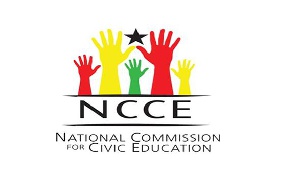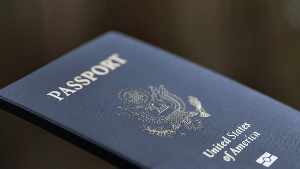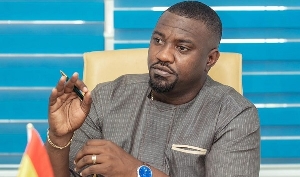The National Commission for Civic Education (NCCE) in the Ho Municipality has established a seven-member Inter-Party Dialogue Committee (IPDC) to ensure peace and stability during the upcoming electoral process.
The committee has been tasked with promoting peaceful, violence-free elections and leading an educational campaign on the theme “Together We Can Build Ghana, So Get Involved.”
During the launch, the Volta Regional NCCE Director, Ken Kponor, welcomed the committee members and emphasized the critical role they would play in fostering peace during the election period.
He highlighted that the forthcoming elections represent a crucial time for Ghana, making it essential to ensure that voters are well-informed and actively engaged in the process.
Mr. Kponor outlined the responsibilities of the IPDCs, which include organizing an interactive inter-party forum aimed at defusing tensions that could escalate into violence.
He stressed the importance of engaging stakeholders in resolving both inter- and intra-party disputes that could potentially affect the upcoming elections.
In a presentation on “Election 2024: The Impact of Fake News on Social Media,” Vincent Adzika, the NCCE Director in Ho, highlighted the challenges posed by the rapid spread of misinformation online.
He noted that approximately 7.4 million Ghanaians were active on social media platforms like Facebook, WhatsApp, TikTok, and X, making it easier for fake news to spread quickly.
“With the rise of Artificial Intelligence (AI), creating and disseminating fake news has become even simpler, making it difficult to distinguish between true and false information.”
Adzika warned that fake news on social media had the potential to significantly influence the outcome of Ghana’s 2024 elections by shaping voter perceptions, deepening polarization, and undermining trust in the electoral process.
He urged all stakeholders to fact-check information before sharing it on social media and to actively debunk falsehoods to prevent them from negatively affecting the peace of the country.
Michael Tormeti, the Acting Volta Regional Director of the Commission on Human Rights and Administrative Justice (CHRAJ), advised the committee to be mindful of the Public Order Act and the consequences of violating it.
He provided insights into the Public Order Act 1994 (Act 491) during his presentation.
Assistant Superintendent of Police (ASP), Seidu Kodua, the Ho Municipal Police Commander, reiterated the importance of democracy, peace, and the rule of law.
He assured the public that the police are fully prepared to maintain peace and order throughout the electoral process, including during voter registration, transfer of votes, and the exhibition exercise.
He urged all political parties to discourage their followers from engaging in election-related violence, affirming that the police are ready to enforce the law to maintain peace.
Emilia Akortia, the Ho Municipal Director of the Electoral Commission (EC), encouraged political parties to thoroughly train their polling agents, emphasizing that the EC was committed to conducting free, fair, and transparent elections as it had done in the past.
Representatives from various political parties present at the launch also pledged to maintain peace throughout the electoral process and urged the NCCE, EC, and Peace Council to continue organizing more engagement sessions and workshops to ensure peaceful elections.
The members of the IPDC in Ho Municipality include Rev. Fr. Dr. Isaac Peniyenah as Chair, Mama Awude II as Vice Chairperson, Abdul Razak as Organizer, and Vincent Adzika (NCCE) as Secretary.
Other members include Theophilus Adzanku (NDC), Frank Ahaze (NPP), and Esenam Adikah (Independent Candidate).
The NCCE established the Inter-Party Dialogue Committees at the regional and district levels as a proactive measure to foster peaceful elections and ensure political stability in the nation.
The IPDCs serve as a platform for dialogue and collaboration among political parties, stakeholders, and citizens to address electoral concerns, promote tolerance, and mitigate potential conflicts.
Regional News of Thursday, 5 September 2024
Source: GNA

















